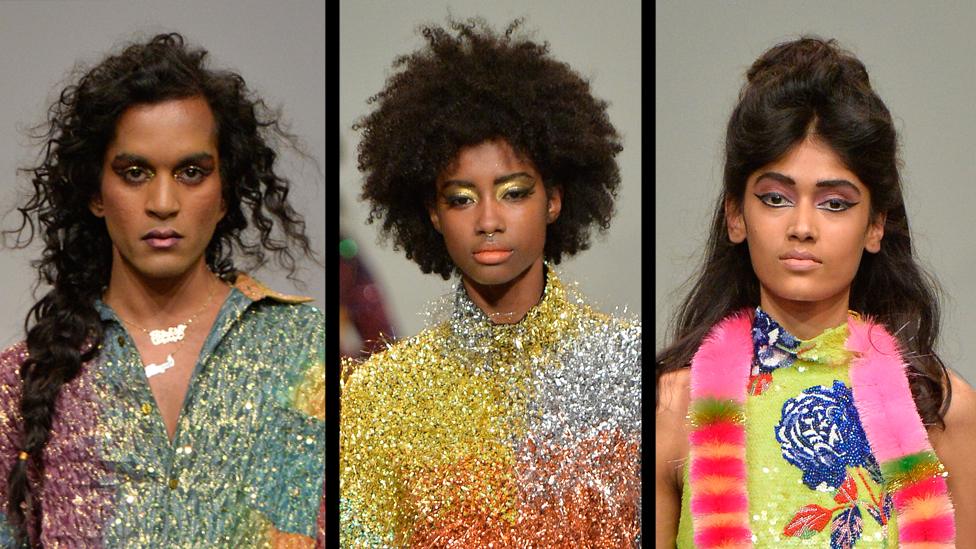Zendaya at Paris Fashion Week: 'Black women aren't always represented'
- Published
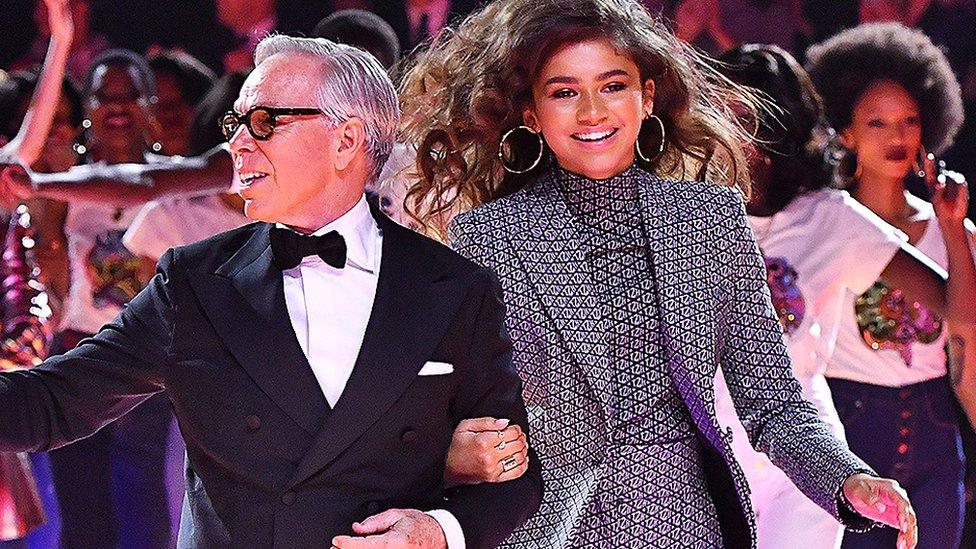
Zendaya's collaboration with Tommy Hilfiger has been praised - and not just for the clothes that were seen on the runway.
Her show at Paris Fashion Week included only women of colour, including plus-size and models aged up to 70.
The show has been seen as a major statement for diversity in fashion.
"I'm still not truly convinced the other night really happened, cause that's how dreams feel," said Zendaya.
Alongside young models such as Winnie Harlow and Jourdan Dunn, older names from the fashion industry such as Grace Jones, Beverly Johnson, Veronica Webb, Beverly Peele and Pat Cleveland also worked the catwalk.
Allow X content?
This article contains content provided by X. We ask for your permission before anything is loaded, as they may be using cookies and other technologies. You may want to read X’s cookie policy, external and privacy policy, external before accepting. To view this content choose ‘accept and continue’.

"Our show was a celebration and appreciation for all of the iconic women who fearlessly pioneered and opened doors that are the very reason I'm able to exist in this space," Zendaya added in her Instagram post about the show.
Allow Instagram content?
This article contains content provided by Instagram. We ask for your permission before anything is loaded, as they may be using cookies and other technologies. You may want to read Meta’s Instagram cookie policy, external and privacy policy, external before accepting. To view this content choose ‘accept and continue’.
"It was amazing to see so many women across age groups and shades walking down that runway," says Ngoni Chikwenegere, a 25-year-old fashion designer from Northampton.
"It just felt really good for representation - and I really loved the clothes. I loved the sequins, I loved the metallics, and I loved the silhouettes."
'You don't always see yourself represented on the catwalk'
Ngoni runs her own fashion label, We Are Kin, and for her campaigns casts a mix of black, white and Asian models to wear her designs.
And she sees a similarity in the message Zendaya (and previously, people like Rihanna) are trying to spread with their work and how they cast their shows.
"These celebrities have grown up like I've grown up where you love fashion but you don't always see yourself represented," Ngoni says.
"This has been happening in the fashion world, but because the people doing this weren't as famous as Rihanna or Zendaya, it wasn't as mainstream.
"As someone who grew up and didn't see herself represented, it's something I'm really trying to do with my own label."
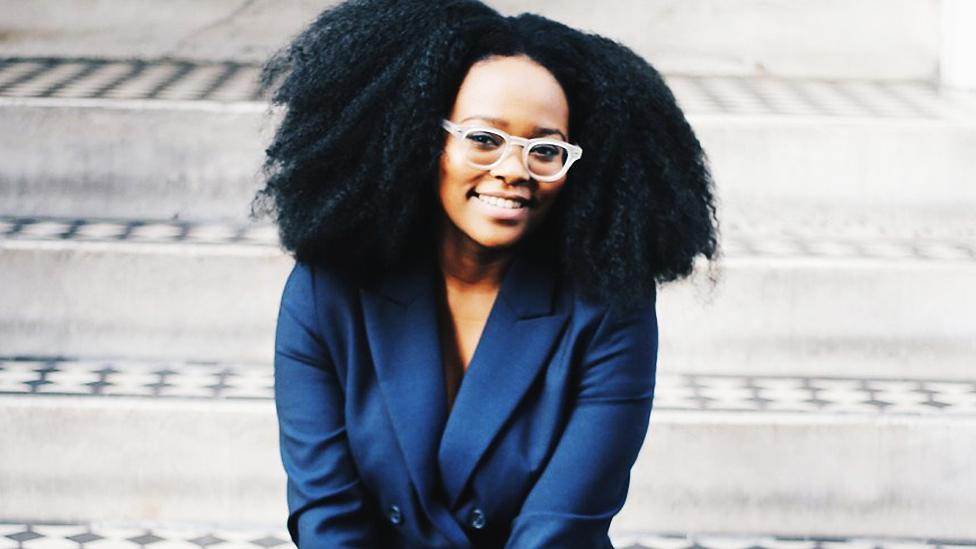
"I really loved the clothes. I loved the sequins, I loved the metallics, and I loved the silhouettes," says Ngoni
For Ngoni, the most empowering part of Zendaya's show was seeing models who are both black and plus-size on the runway.
"I feel like the colour and the size are still areas where people are still campaigning to have a bit more diversity and that's quite equal I think," she says.
"So it was really good to have black women, but also plus-sized black women in a show and it didn't feel tokenistic."
The diversity wasn't just on the catwalk
And there was more representation at the show than we saw on the catwalk, as model Leomie Anderson revealed on Twitter.
Allow X content?
This article contains content provided by X. We ask for your permission before anything is loaded, as they may be using cookies and other technologies. You may want to read X’s cookie policy, external and privacy policy, external before accepting. To view this content choose ‘accept and continue’.

"To every woman on that stage and the many others who weren't, we love you, we see you and we thank you," tweeted Zendaya following the show
Follow Newsbeat on Instagram, external, Facebook, external and Twitter, external.
Listen to Newsbeat live at 12:45 and 17:45 every weekday on BBC Radio 1 and 1Xtra - if you miss us you can listen back here.
- Published13 September 2018
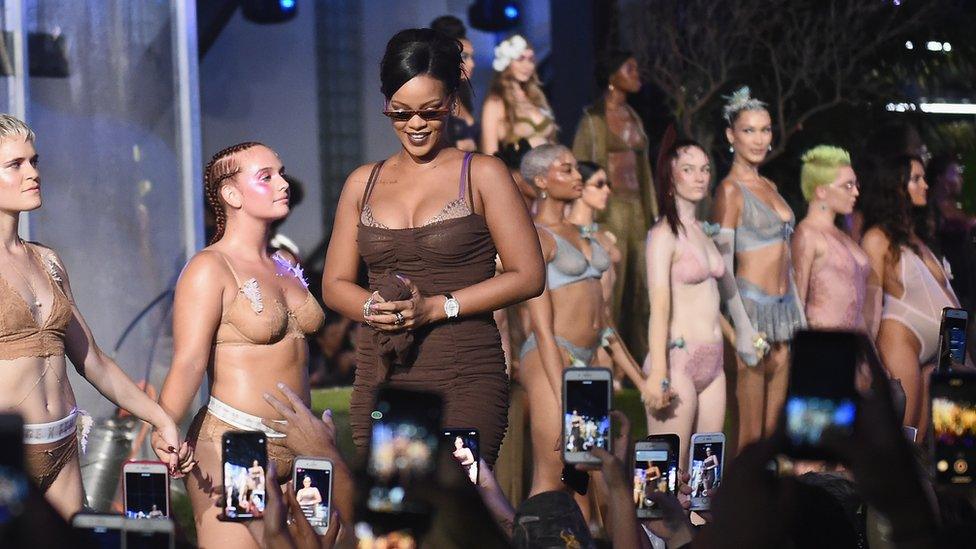
- Published18 September 2018
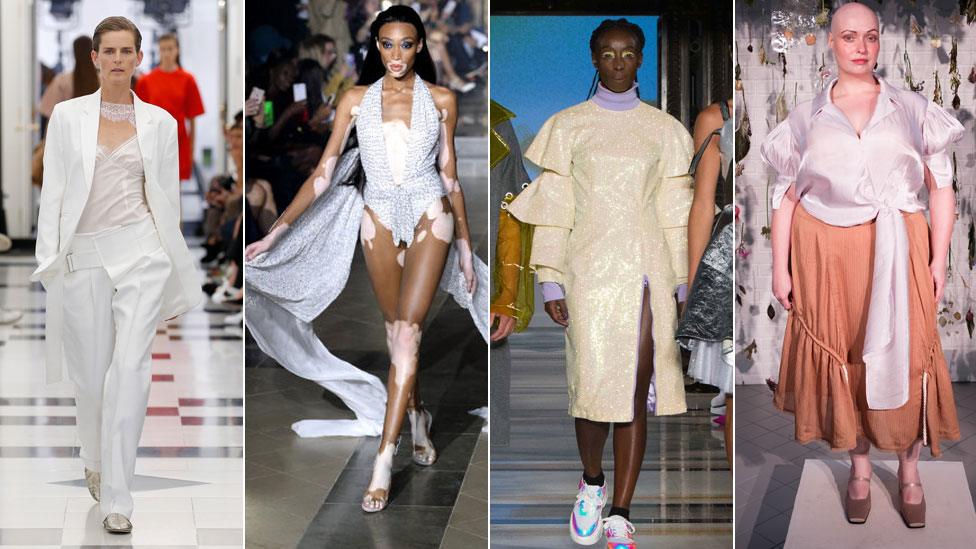
- Published22 November 2018
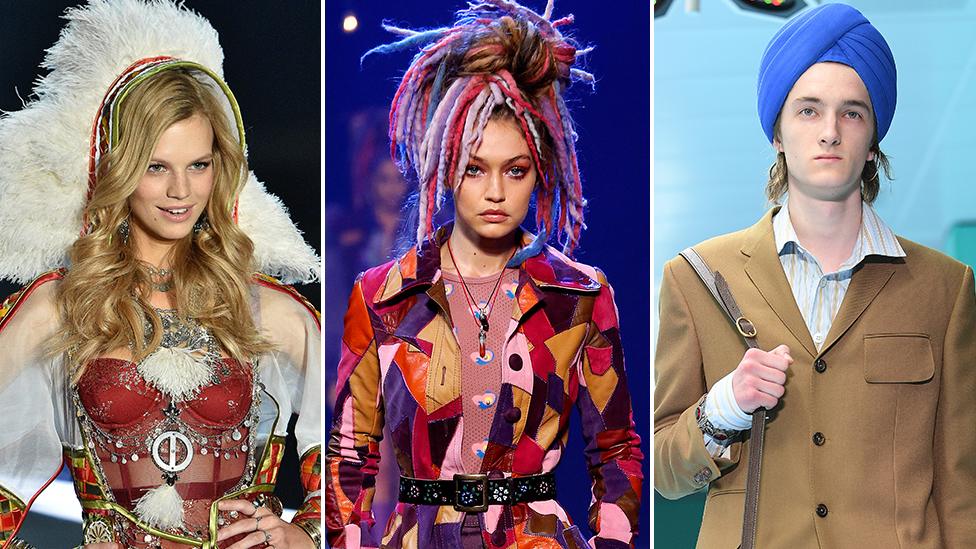
- Published19 February 2018
